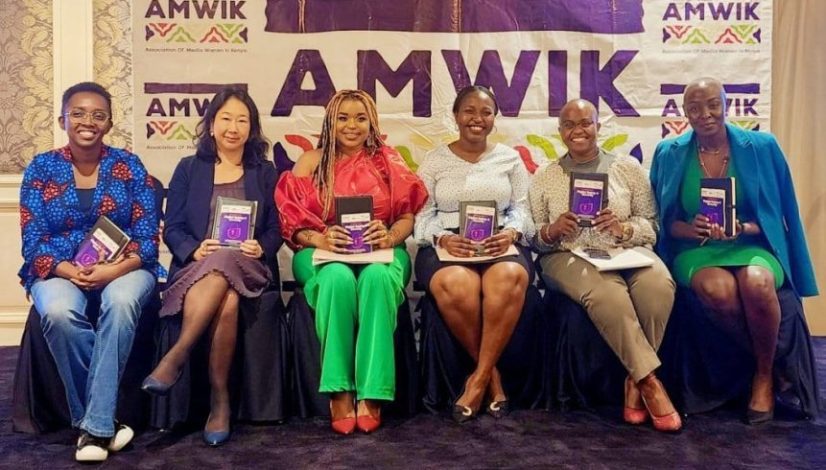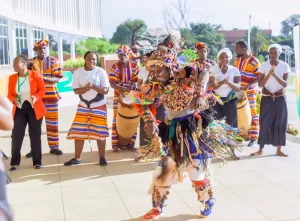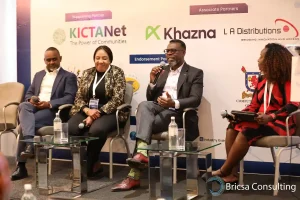By Valarie Waswa
On November 25, 2024, KICTANet’s Legal Fellow and Gender Digital Rights Advocate, Valarie Waswa, participated in a panel discussion hosted by the Association of Media Women in Kenya (AMWIK) to address the pressing issue of Technology-Facilitated Gender-Based Violence (TFGBV).
The event, held during the 16 Days of Activism Against Gender-Based Violence, highlighted the urgent need for a multi-faceted approach to combat this growing threat to women’s safety and digital rights.
Key Issues Discussed
- Capacity Building for Law Enforcement: The panel emphasised the need for increased training and resources for law enforcement agencies to effectively investigate and prosecute TFGBV cases.
- Streamlined Reporting Mechanisms: Establishing user-friendly and accessible reporting systems for victims of TFGBV was identified as a crucial step.
- Multi-Stakeholder Collaboration: Fostering partnerships between the legal sector, technology developers, civil society, and the media is essential for addressing TFGBV.
- Legal Aid and Financial Support: Providing adequate legal aid to victims of TFGBV is crucial for ensuring access to justice.
- Innovative Technology Solutions: Developing digital platforms with built-in safety features can help mitigate the risks of online harassment and abuse.
By addressing these critical issues, we can work towards creating a safer and more inclusive digital landscape for women in Kenya.
AMWIK’s report, “An Investigation on the Prevalence of Technology Facilitated Gender Based Violence Against Women with Prominent Public Lives,” found out that TFGBV is a growing concern, particularly for women in public life.
The report highlights several key findings:
Prevalence and Forms of TFGBV
- Common Platforms: Facebook and WhatsApp are the most prevalent platforms for TFGBV.
- Predominant Forms: Intimate image sharing, hate speech, harassing messages, cyberbullying, and cyberstalking are common forms of TFGBV.
- Perpetrators: A significant portion of TFGBV incidents are perpetrated by strangers or individuals with unknown identities, underscoring the anonymity of the online space.
- Workplace Harassment: Co-workers account for a substantial number of TFGBV incidents.
The findings of the report are in line with our resources around Tech Facilitated Gender-Based Violence and Online Gender-Based Violence in Kenya which include:
- Unmasking The Trolls: Research on Online Gender-Based Violence in Kenya
- Comic Women & Data. Keeping Safe Online
- Creating Safe Online Spaces For Women
- Trends of ONLINE VIOLENCE against Women in Politics During the COVID-19 pandemic in Kenya
Ms. Valarie Waswa is a Legal Fellow and a Gender Digital Rights Advocate at KICTANet
![]()




